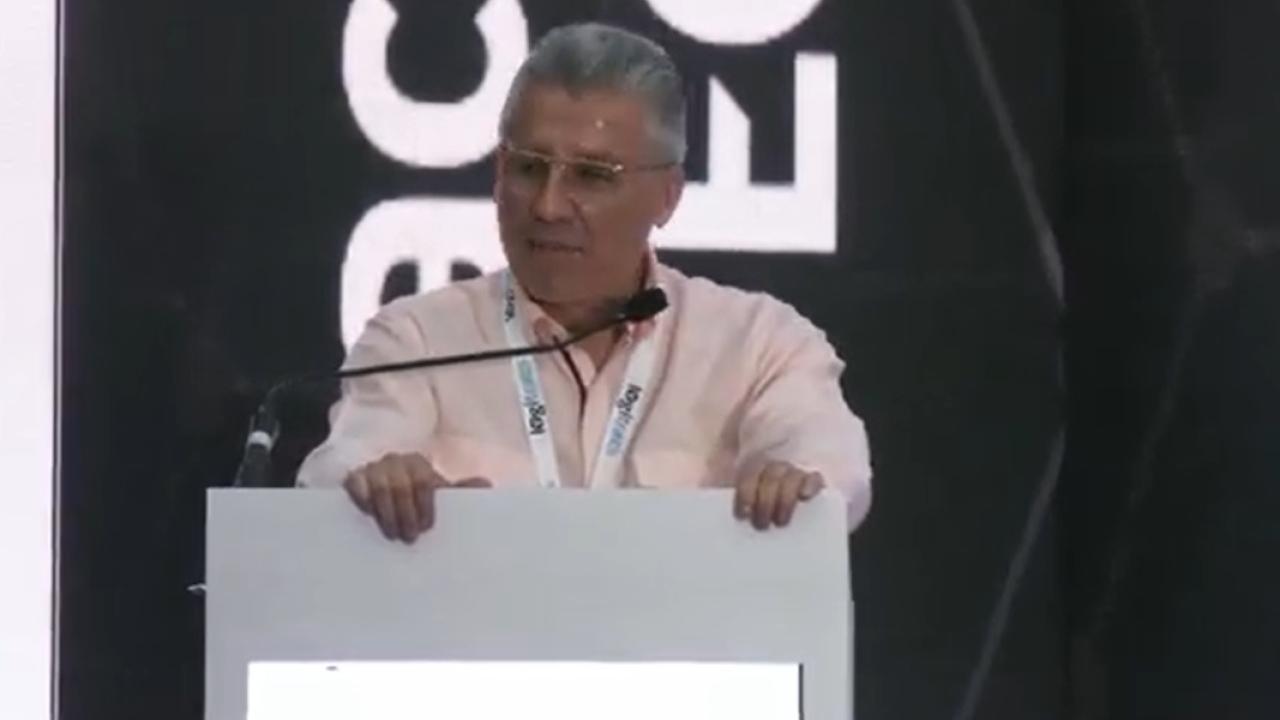
For Fedetranscarga, the federation of transport companies, the answer is to stop paying Ecopetrol international reference prices.
Three days have passed since the so-called truckers' strike began. The demonstrators are protesting against the decision of Gustavo Petro's government to increase the price of diesel, as they consider that it affects their operating costs and, in the long run, the prices of basic family products.
The root of this whole discussion dates back to 2007, with the creation of the Fuel Price Stabilization Fund (FEPC). For many years, this fund sought to ensure that fluctuations in the price of oil on the international market would not affect the price that Colombians pay for a gallon of gasoline and diesel.
The problem is that, over the years, this fund became unsustainable and began to accumulate gaps that amount to billions of pesos (the Ministry of Finance estimates more than $115 billion), which has been money that has come out of the nation's budget.
The fiscally responsible thing to do, according to the Ministry of Finance (which has received support from international entities in this matter), is to gradually deplete this fund, which implies an increase in the price of fuel.
It started with gasoline, with monthly increases ranging from $200 to $600, and this year they wanted to start with ACPM (which is the fuel used to move vehicles that transport merchandise in the country).
Initially, the FEPC deficit was projected to close at $11.6 billion this year, which, with the reduction announced by the Government, would be close to $10 billion.
Despite the macroeconomic argument that the nation has for making this increase, and the number of institutions that support this decision as fiscally responsible, the transporters' union opposes it.
Fedetranscarga Vice President Arnulfo Cuervo said that increasing the price of diesel will have a serious impact on the transporters' business.
He explains that with the current rate, diesel represents 40% of the operating costs of each freight, while with the increase this could rise to 64%, not counting the weight of other items such as tolls (17%), salaries (12%), as well as the purchase of tires, spare parts and vehicle maintenance.
In other words, the increase in diesel would increase the operating costs of transporters so much that the profit margin would be minimal or non-existent.
The answer to this problem would be to raise the price of freight, which in the long run would also increase the cost of products, especially those that make up the basic family basket, such as food.
However, the problem would still be latent, as Cuervo points out that the current situation will worsen the law of supply and demand that is experienced in this business, to the extent that the demand for freight has decreased while the supply of trucks remains the same. In this scenario, trips are given to transporters who charge less.
In this regard, the Ministry of Finance has highlighted the importance of the Information System for Efficient Costs for Motor Freight Transport (SICE TAC), which is the one that, in a certain way, establishes the values for freight in the country. In theory, if diesel is raised, and in turn the SICE TAC makes the respective adjustment, transporters should not experience any impact on their income versus their operating costs.
However, as Cuervo reiterates, many small and medium-sized businesses prefer to expose themselves to the sanctions imposed by the superintendency for failing to comply with the SICE TAC and pay lower rates. Not out of desire, but because the weak growth of the country's economy has led to many companies not being willing to assume additional costs.
Added to the above is a long list of shortcomings that the SICE TAC would have, which makes it unsuitable to absorb the effects that an increase in diesel would generate: "it does not have the supply and demand component immersed; it does not consider all routes; it does not consider vehicle typologies; it has established freight prices for both a model 80 truck and a model 2024 truck (which for the transporter requires a different investment) and it does not cover all those who consume diesel in the country.
For this reason, Cuervo believes that the best way out of this situation is to stop paying Ecopetrol at international prices. He believes that it makes no sense that Ecopetrol, a state-owned company that produces and refines fuel in Colombia, sells these products (gasoline and diesel) at international prices.
The reason for this action by Ecopetrol is the market opportunity it has, that is, it is not in its interest as a company to sell in Colombia at a lower price when there is a market abroad that is willing to buy its production at a higher price.
The idea put forward by the vice president of Fedetranscarga is, in fact, not new. It has been proposed to the government for at least 13 months, and has been rejected (because it would imply a considerable loss in income for the main company in Colombia).
He also does not believe in defending a model that benefits a private company as powerful as GP Morgan (the American financial institution), which is the largest private shareholder in Ecopetrol (its shareholding is almost 3%).
"Our proposal is simple: that production and marketing costs be paid and a reasonable profit be delivered to Ecopetrol," he concluded.
At the moment there is no solution to this problem, which already represents significant impacts on mobility and supplies in the country. The expectation is that meetings between the Government and representatives of the union can provide solutions.









